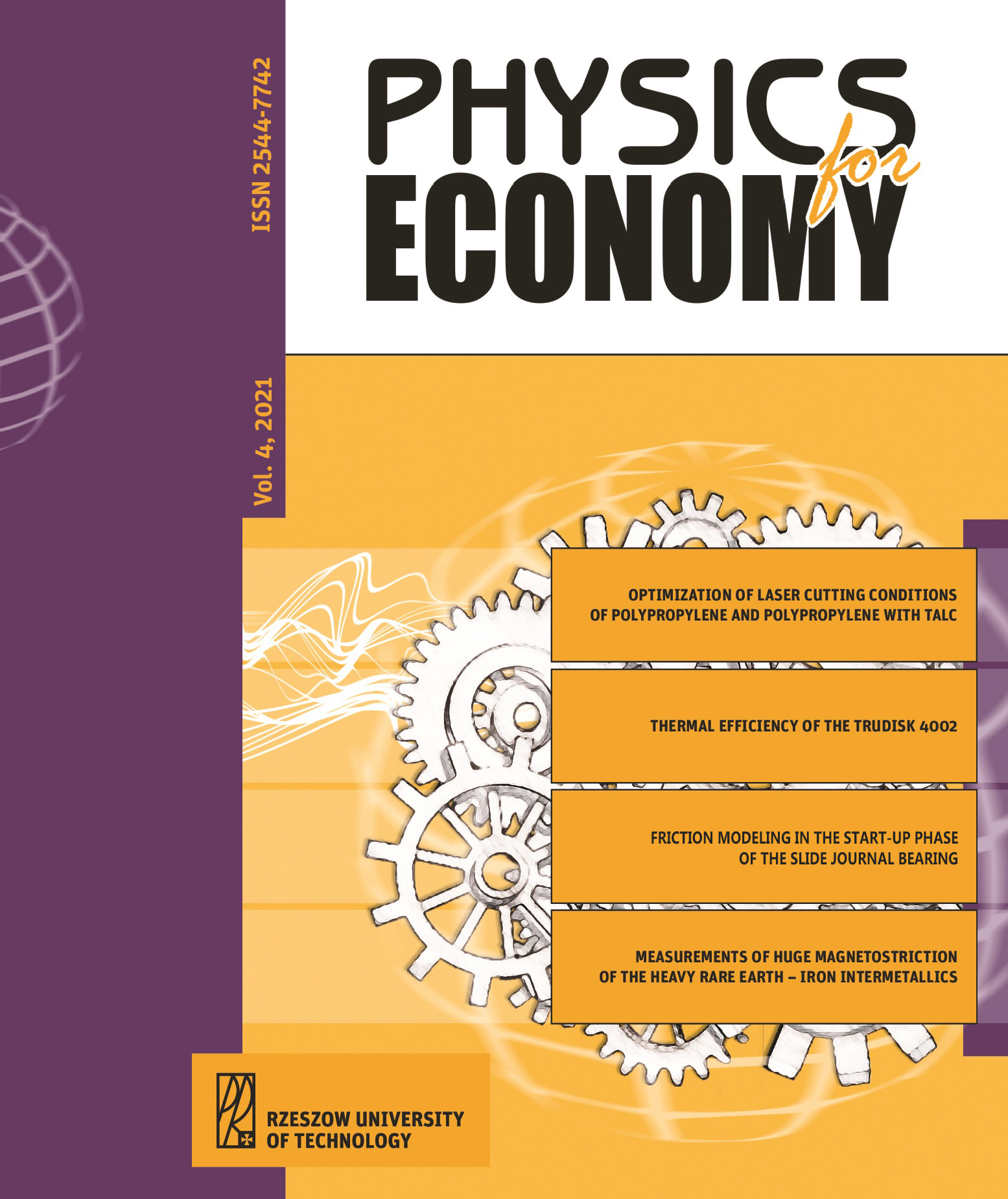Abstract
The article presents the test results of thermal efficiency of the welded thin heatresistant sheets of Inconel 718 nickel alloys using the Trudisk 4002 instalated in the TruLaser 5020 equipment. The thermal efficiency of the laser was determined using a water-cooled calorimeter. Thin sheet metal samples 0,7 and 0,9 mm, installed in the calorimeter were subjected to a laser beam with the power of 400 to 700 W, moved along the line at a constant speed Vs = 25 mm/s. The thermal efficiency was calculated as the quotient of the heat absorber by the welded sheets, determined calorimetrically, to the total amount of heat generated by the laser. The results show that thermal efficiency depends non-linearly on the laser power. The thickness of the plates to be welded does not affect efficiency. As the power of the laser increases from 400 to 600 W, thermal efficiency decreases three times from 21% to 7%, and with the increase of its power to 700 W, thermal efficiency increases to 28%.
References
Dul I.: Zastosowanie i przetwarzanie stopów niklu w przemyśle lotniczym, Przegląd Spawalnictwa, 7-8, 2009, s. 62-67
Jędrusik A.: Technologia cięcia, oczyszczania i spawania laserowego cienkich blach ze stopu Inconel 718, praca doktorska, Wydział Budowy Maszyn i Lotnictwa, Rzeszów 2015
Orłowicz A.W., Mróz M., Trytek A., Tupaj M., Betlej J., Płoszaj F.: Kalorymetr przepływowy do pomiarów cieplnych w procesach spajania, Patent nr P-384759, 2012


